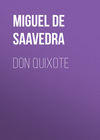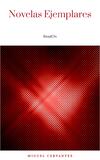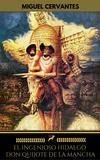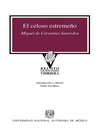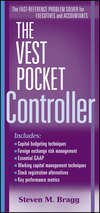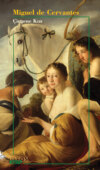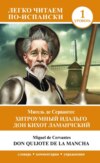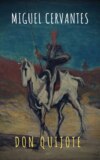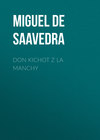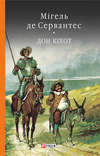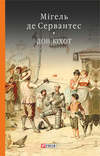Kitabı oku: «Don Quixote», sayfa 9
CHAPTER IX.
IN WHICH IS CONCLUDED AND FINISHED THE TERRIFIC BATTLE BETWEEN THE GALLANT BISCAYAN AND THE VALIANT MANCHEGAN
In the First Part of this history we left the valiant Biscayan and the renowned Don Quixote with drawn swords uplifted, ready to deliver two such furious slashing blows that if they had fallen full and fair they would at least have split and cleft them asunder from top to toe and laid them open like a pomegranate; and at this so critical point the delightful history came to a stop and stood cut short without any intimation from the author where what was missing was to be found.
This distressed me greatly, because the pleasure derived from having read such a small portion turned to vexation at the thought of the poor chance that presented itself of finding the large part that, so it seemed to me, was missing of such an interesting tale. It appeared to me to be a thing impossible and contrary to all precedent that so good a knight should have been without some sage to undertake the task of writing his marvellous achievements; a thing that was never wanting to any of those knights-errant who, they say, went after adventures; for every one of them had one or two sages as if made on purpose, who not only recorded their deeds but described their most trifling thoughts and follies, however secret they might be; and such a good knight could not have been so unfortunate as not to have what Platir and others like him had in abundance. And so I could not bring myself to believe that such a gallant tale had been left maimed and mutilated, and I laid the blame on Time, the devourer and destroyer of all things, that had either concealed or consumed it.
On the other hand, it struck me that, inasmuch as among his books there had been found such modern ones as "The Enlightenment of Jealousy" and the "Nymphs and Shepherds of Henares," his story must likewise be modern, and that though it might not be written, it might exist in the memory of the people of his village and of those in the neighbourhood. This reflection kept me perplexed and longing to know really and truly the whole life and wondrous deeds of our famous Spaniard, Don Quixote of La Mancha, light and mirror of Manchegan chivalry, and the first that in our age and in these so evil days devoted himself to the labour and exercise of the arms of knight-errantry, righting wrongs, succouring widows, and protecting damsels of that sort that used to ride about, whip in hand, on their palfreys, with all their virginity about them, from mountain to mountain and valley to valley – for, if it were not for some ruffian, or boor with a hood and hatchet, or monstrous giant, that forced them, there were in days of yore damsels that at the end of eighty years, in all which time they had never slept a day under a roof, went to their graves as much maids as the mothers that bore them. I say, then, that in these and other respects our gallant Don Quixote is worthy of everlasting and notable praise, nor should it be withheld even from me for the labour and pains spent in searching for the conclusion of this delightful history; though I know well that if Heaven, chance and good fortune had not helped me, the world would have remained deprived of an entertainment and pleasure that for a couple of hours or so may well occupy him who shall read it attentively. The discovery of it occurred in this way.
One day, as I was in the Alcana of Toledo, a boy came up to sell some pamphlets and old papers to a silk mercer, and, as I am fond of reading even the very scraps of paper in the streets, led by this natural bent of mine I took up one of the pamphlets the boy had for sale, and saw that it was in characters which I recognised as Arabic, and as I was unable to read them though I could recognise them, I looked about to see if there were any Spanish-speaking Morisco at hand to read them for me; nor was there any great difficulty in finding such an interpreter, for even had I sought one for an older and better language I should have found him. In short, chance provided me with one, who when I told him what I wanted and put the book into his hands, opened it in the middle and after reading a little in it began to laugh. I asked him what he was laughing at, and he replied that it was at something the book had written in the margin by way of a note. I bade him tell it to me; and he still laughing said, "In the margin, as I told you, this is written: 'This Dulcinea del Toboso so often mentioned in this history, had, they say, the best hand of any woman in all La Mancha for salting pigs.'"
When I heard Dulcinea del Toboso named, I was struck with surprise and amazement, for it occurred to me at once that these pamphlets contained the history of Don Quixote. With this idea I pressed him to read the beginning, and doing so, turning the Arabic offhand into Castilian, he told me it meant, "History of Don Quixote of La Mancha, written by Cide Hamete Benengeli, an Arab historian." It required great caution to hide the joy I felt when the title of the book reached my ears, and snatching it from the silk mercer, I bought all the papers and pamphlets from the boy for half a real; and if he had had his wits about him and had known how eager I was for them, he might have safely calculated on making more than six reals by the bargain. I withdrew at once with the Morisco into the cloister of the cathedral, and begged him to turn all these pamphlets that related to Don Quixote into the Castilian tongue, without omitting or adding anything to them, offering him whatever payment he pleased. He was satisfied with two arrobas of raisins and two bushels of wheat, and promised to translate them faithfully and with all despatch; but to make the matter easier, and not to let such a precious find out of my hands, I took him to my house, where in little more than a month and a half he translated the whole just as it is set down here.
In the first pamphlet the battle between Don Quixote and the Biscayan was drawn to the very life, they planted in the same attitude as the history describes, their swords raised, and the one protected by his buckler, the other by his cushion, and the Biscayan's mule so true to nature that it could be seen to be a hired one a bowshot off. The Biscayan had an inscription under his feet which said, "Don Sancho de Azpeitia," which no doubt must have been his name; and at the feet of Rocinante was another that said, "Don Quixote." Rocinante was marvellously portrayed, so long and thin, so lank and lean, with so much backbone and so far gone in consumption, that he showed plainly with what judgment and propriety the name of Rocinante had been bestowed upon him. Near him was Sancho Panza holding the halter of his ass, at whose feet was another label that said, "Sancho Zancas," and according to the picture, he must have had a big belly, a short body, and long shanks, for which reason, no doubt, the names of Panza and Zancas were given him, for by these two surnames the history several times calls him. Some other trifling particulars might be mentioned, but they are all of slight importance and have nothing to do with the true relation of the history; and no history can be bad so long as it is true.
If against the present one any objection be raised on the score of its truth, it can only be that its author was an Arab, as lying is a very common propensity with those of that nation; though, as they are such enemies of ours, it is conceivable that there were omissions rather than additions made in the course of it. And this is my own opinion; for, where he could and should give freedom to his pen in praise of so worthy a knight, he seems to me deliberately to pass it over in silence; which is ill done and worse contrived, for it is the business and duty of historians to be exact, truthful, and wholly free from passion, and neither interest nor fear, hatred nor love, should make them swerve from the path of truth, whose mother is history, rival of time, storehouse of deeds, witness for the past, example and counsel for the present, and warning for the future. In this I know will be found all that can be desired in the pleasantest, and if it be wanting in any good quality, I maintain it is the fault of its hound of an author and not the fault of the subject. To be brief, its Second Part, according to the translation, began in this way:
With trenchant swords upraised and poised on high, it seemed as though the two valiant and wrathful combatants stood threatening heaven, and earth, and hell, with such resolution and determination did they bear themselves. The fiery Biscayan was the first to strike a blow, which was delivered with such force and fury that had not the sword turned in its course, that single stroke would have sufficed to put an end to the bitter struggle and to all the adventures of our knight; but that good fortune which reserved him for greater things, turned aside the sword of his adversary, so that although it smote him upon the left shoulder, it did him no more harm than to strip all that side of its armour, carrying away a great part of his helmet with half of his ear, all which with fearful ruin fell to the ground, leaving him in a sorry plight.
Good God! Who is there that could properly describe the rage that filled the heart of our Manchegan when he saw himself dealt with in this fashion? All that can be said is, it was such that he again raised himself in his stirrups, and, grasping his sword more firmly with both hands, he came down on the Biscayan with such fury, smiting him full over the cushion and over the head, that – even so good a shield proving useless – as if a mountain had fallen on him, he began to bleed from nose, mouth, and ears, reeling as if about to fall backwards from his mule, as no doubt he would have done had he not flung his arms about its neck; at the same time, however, he slipped his feet out of the stirrups and then unclasped his arms, and the mule, taking fright at the terrible blow, made off across the plain, and with a few plunges flung its master to the ground. Don Quixote stood looking on very calmly, and, when he saw him fall, leaped from his horse and with great briskness ran to him, and, presenting the point of his sword to his eyes, bade him surrender, or he would cut his head off. The Biscayan was so bewildered that he was unable to answer a word, and it would have gone hard with him, so blind was Don Quixote, had not the ladies in the coach, who had hitherto been watching the combat in great terror, hastened to where he stood and implored him with earnest entreaties to grant them the great grace and favour of sparing their squire's life; to which Don Quixote replied with much gravity and dignity, "In truth, fair ladies, I am well content to do what ye ask of me; but it must be on one condition and understanding, which is that this knight promise me to go to the village of El Toboso, and on my behalf present himself before the peerless lady Dulcinea, that she deal with him as shall be most pleasing to her."
The terrified and disconsolate ladies, without discussing Don Quixote's demand or asking who Dulcinea might be, promised that their squire should do all that had been commanded.
"Then, on the faith of that promise," said Don Quixote, "I shall do him no further harm, though he well deserves it of me."
CHAPTER X.
OF THE PLEASANT DISCOURSE THAT PASSED BETWEEN DON QUIXOTE AND HIS SQUIRE SANCHO PANZA
Now by this time Sancho had risen, rather the worse for the handling of the friars' muleteers, and stood watching the battle of his master, Don Quixote, and praying to God in his heart that it might be his will to grant him the victory, and that he might thereby win some island to make him governor of, as he had promised. Seeing, therefore, that the struggle was now over, and that his master was returning to mount Rocinante, he approached to hold the stirrup for him, and, before he could mount, he went on his knees before him, and taking his hand, kissed it saying, "May it please your worship, Senor Don Quixote, to give me the government of that island which has been won in this hard fight, for be it ever so big I feel myself in sufficient force to be able to govern it as much and as well as anyone in the world who has ever governed islands."
To which Don Quixote replied, "Thou must take notice, brother Sancho, that this adventure and those like it are not adventures of islands, but of cross-roads, in which nothing is got except a broken head or an ear the less: have patience, for adventures will present themselves from which I may make you, not only a governor, but something more."
Sancho gave him many thanks, and again kissing his hand and the skirt of his hauberk, helped him to mount Rocinante, and mounting his ass himself, proceeded to follow his master, who at a brisk pace, without taking leave, or saying anything further to the ladies belonging to the coach, turned into a wood that was hard by. Sancho followed him at his ass's best trot, but Rocinante stepped out so that, seeing himself left behind, he was forced to call to his master to wait for him. Don Quixote did so, reining in Rocinante until his weary squire came up, who on reaching him said, "It seems to me, senor, it would be prudent in us to go and take refuge in some church, for, seeing how mauled he with whom you fought has been left, it will be no wonder if they give information of the affair to the Holy Brotherhood and arrest us, and, faith, if they do, before we come out of gaol we shall have to sweat for it."
"Peace," said Don Quixote; "where hast thou ever seen or heard that a knight-errant has been arraigned before a court of justice, however many homicides he may have committed?"
"I know nothing about omecils," answered Sancho, "nor in my life have had anything to do with one; I only know that the Holy Brotherhood looks after those who fight in the fields, and in that other matter I do not meddle."
"Then thou needst have no uneasiness, my friend," said Don Quixote, "for I will deliver thee out of the hands of the Chaldeans, much more out of those of the Brotherhood. But tell me, as thou livest, hast thou seen a more valiant knight than I in all the known world; hast thou read in history of any who has or had higher mettle in attack, more spirit in maintaining it, more dexterity in wounding or skill in overthrowing?"
"The truth is," answered Sancho, "that I have never read any history, for I can neither read nor write, but what I will venture to bet is that a more daring master than your worship I have never served in all the days of my life, and God grant that this daring be not paid for where I have said; what I beg of your worship is to dress your wound, for a great deal of blood flows from that ear, and I have here some lint and a little white ointment in the alforjas."
"All that might be well dispensed with," said Don Quixote, "if I had remembered to make a vial of the balsam of Fierabras, for time and medicine are saved by one single drop."
"What vial and what balsam is that?" said Sancho Panza.
"It is a balsam," answered Don Quixote, "the receipt of which I have in my memory, with which one need have no fear of death, or dread dying of any wound; and so when I make it and give it to thee thou hast nothing to do when in some battle thou seest they have cut me in half through the middle of the body – as is wont to happen frequently, – but neatly and with great nicety, ere the blood congeal, to place that portion of the body which shall have fallen to the ground upon the other half which remains in the saddle, taking care to fit it on evenly and exactly. Then thou shalt give me to drink but two drops of the balsam I have mentioned, and thou shalt see me become sounder than an apple."
"If that be so," said Panza, "I renounce henceforth the government of the promised island, and desire nothing more in payment of my many and faithful services than that your worship give me the receipt of this supreme liquor, for I am persuaded it will be worth more than two reals an ounce anywhere, and I want no more to pass the rest of my life in ease and honour; but it remains to be told if it costs much to make it."
"With less than three reals, six quarts of it may be made," said Don Quixote.
"Sinner that I am!" said Sancho, "then why does your worship put off making it and teaching it to me?"
"Peace, friend," answered Don Quixote; "greater secrets I mean to teach thee and greater favours to bestow upon thee; and for the present let us see to the dressing, for my ear pains me more than I could wish."
Sancho took out some lint and ointment from the alforjas; but when Don Quixote came to see his helmet shattered, he was like to lose his senses, and clapping his hand upon his sword and raising his eyes to heaven, be said, "I swear by the Creator of all things and the four Gospels in their fullest extent, to do as the great Marquis of Mantua did when he swore to avenge the death of his nephew Baldwin (and that was not to eat bread from a table-cloth, nor embrace his wife, and other points which, though I cannot now call them to mind, I here grant as expressed) until I take complete vengeance upon him who has committed such an offence against me."
Hearing this, Sancho said to him, "Your worship should bear in mind, Senor Don Quixote, that if the knight has done what was commanded him in going to present himself before my lady Dulcinea del Toboso, he will have done all that he was bound to do, and does not deserve further punishment unless he commits some new offence."
"Thou hast said well and hit the point," answered Don Quixote; and so I recall the oath in so far as relates to taking fresh vengeance on him, but I make and confirm it anew to lead the life I have said until such time as I take by force from some knight another helmet such as this and as good; and think not, Sancho, that I am raising smoke with straw in doing so, for I have one to imitate in the matter, since the very same thing to a hair happened in the case of Mambrino's helmet, which cost Sacripante so dear."
"Senor," replied Sancho, "let your worship send all such oaths to the devil, for they are very pernicious to salvation and prejudicial to the conscience; just tell me now, if for several days to come we fall in with no man armed with a helmet, what are we to do? Is the oath to be observed in spite of all the inconvenience and discomfort it will be to sleep in your clothes, and not to sleep in a house, and a thousand other mortifications contained in the oath of that old fool the Marquis of Mantua, which your worship is now wanting to revive? Let your worship observe that there are no men in armour travelling on any of these roads, nothing but carriers and carters, who not only do not wear helmets, but perhaps never heard tell of them all their lives."
"Thou art wrong there," said Don Quixote, "for we shall not have been above two hours among these cross-roads before we see more men in armour than came to Albraca to win the fair Angelica."
"Enough," said Sancho; "so be it then, and God grant us success, and that the time for winning that island which is costing me so dear may soon come, and then let me die."
"I have already told thee, Sancho," said Don Quixote, "not to give thyself any uneasiness on that score; for if an island should fail, there is the kingdom of Denmark, or of Sobradisa, which will fit thee as a ring fits the finger, and all the more that, being on terra firma, thou wilt all the better enjoy thyself. But let us leave that to its own time; see if thou hast anything for us to eat in those alforjas, because we must presently go in quest of some castle where we may lodge to-night and make the balsam I told thee of, for I swear to thee by God, this ear is giving me great pain."
"I have here an onion and a little cheese and a few scraps of bread," said Sancho, "but they are not victuals fit for a valiant knight like your worship."
"How little thou knowest about it," answered Don Quixote; "I would have thee to know, Sancho, that it is the glory of knights-errant to go without eating for a month, and even when they do eat, that it should be of what comes first to hand; and this would have been clear to thee hadst thou read as many histories as I have, for, though they are very many, among them all I have found no mention made of knights-errant eating, unless by accident or at some sumptuous banquets prepared for them, and the rest of the time they passed in dalliance. And though it is plain they could not do without eating and performing all the other natural functions, because, in fact, they were men like ourselves, it is plain too that, wandering as they did the most part of their lives through woods and wilds and without a cook, their most usual fare would be rustic viands such as those thou now offer me; so that, friend Sancho, let not that distress thee which pleases me, and do not seek to make a new world or pervert knight-errantry."
"Pardon me, your worship," said Sancho, "for, as I cannot read or write, as I said just now, I neither know nor comprehend the rules of the profession of chivalry: henceforward I will stock the alforjas with every kind of dry fruit for your worship, as you are a knight; and for myself, as I am not one, I will furnish them with poultry and other things more substantial."
"I do not say, Sancho," replied Don Quixote, "that it is imperative on knights-errant not to eat anything else but the fruits thou speakest of; only that their more usual diet must be those, and certain herbs they found in the fields which they knew and I know too."
"A good thing it is," answered Sancho, "to know those herbs, for to my thinking it will be needful some day to put that knowledge into practice."
And here taking out what he said he had brought, the pair made their repast peaceably and sociably. But anxious to find quarters for the night, they with all despatch made an end of their poor dry fare, mounted at once, and made haste to reach some habitation before night set in; but daylight and the hope of succeeding in their object failed them close by the huts of some goatherds, so they determined to pass the night there, and it was as much to Sancho's discontent not to have reached a house, as it was to his master's satisfaction to sleep under the open heaven, for he fancied that each time this happened to him he performed an act of ownership that helped to prove his chivalry.
